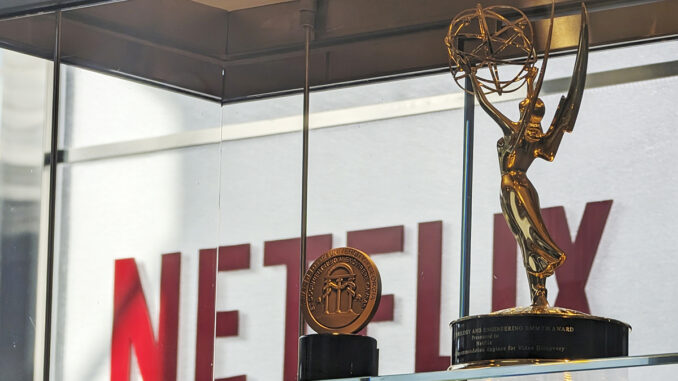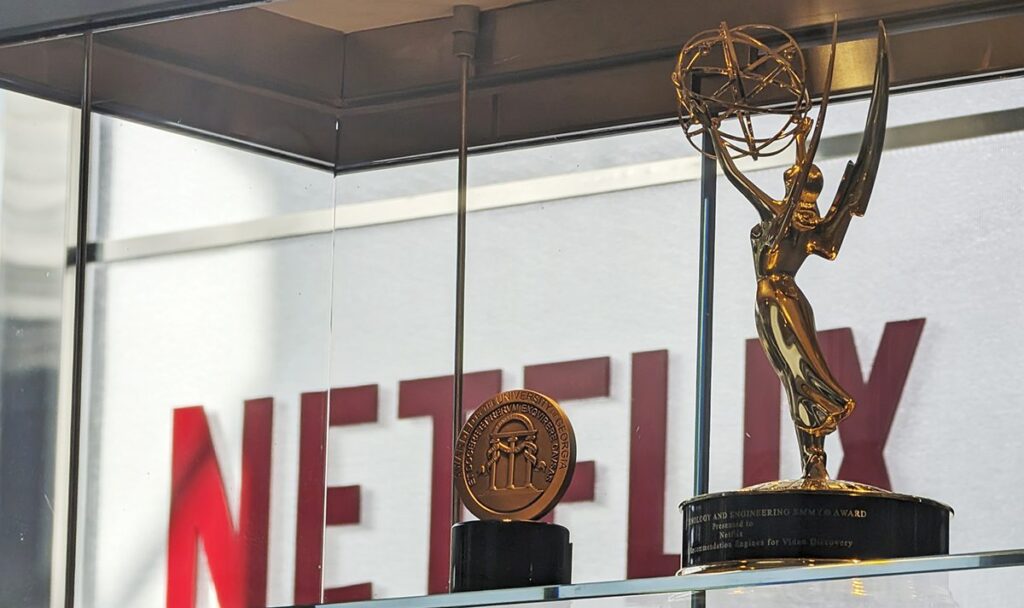

LOS GATOS, Calif. — Video streaming services may have the glitter of Hollywood, but Netflix remains rooted in Silicon Valley and stays one step ahead of traditional TV and movie studios.
The company, based 300 miles from Hollywood, often uses tech tools without viewers noticing: At a time when rival streaming services are suffering from heavy cancellations, the company has kept its 270 million subscribers worldwide happy with only subtle tweaks to its viewer recommendations.
Even though hit TV series like “The Crown” and “Bridgerton” have garnered widespread popularity, Netflix still strives to cater to the diverse tastes of a wide audience, sometimes customizing synopses and trailers for variety shows to please different viewers.
For an Oscar contender like “Nyad,” action fans might see a trailer featuring the title character submerged in water for an epic swim, while comedy fans might see a light-hearted scene featuring two familiar stars exchanging hilarious dialogue.
Netflix is able to achieve these variations through a deep understanding of the viewing habits it gains from analyzing data from the histories of its subscribers, including those who signed up as far back as the late 1990s.
“That's definitely the secret sauce for us,” said Eunice Kim, Netflix's chief product officer, as she spoke about the nuances of how Netflix tries to draw different viewers to different shows. “Our goal every day is not only to keep viewers engaged, but to make sure they're extremely satisfied with their viewing experience.”
According to figures compiled by research firm Antenna, there were about 140 million account cancellations across video-streaming services last year, up 35% from 2022 and nearly triple the number in 2020, when demand for entertainment soared among people forced to stay at home due to the COVID-19 pandemic.
Netflix doesn't disclose churn or dropout rates, but its streaming service added 30 million subscribers last year, its second-largest annual gain after 2020's pandemic-hit boom.
Part of last year's membership growth is down to a crackdown on viewers who were free-riding on Netflix members who shared their account passwords, but the company also benefits from the technological know-how it needs to keep delivering programming to customers who like it and think the service is worth spending money on, said J. Christopher Hamilton, an assistant professor of television, radio and film at Syracuse University.
“What they're doing is very original and very strategic,” Hamilton says. “They're ahead of traditional media companies that are trying to do similar things but don't have the level of sophistication, experience or history of the data in their archives.”
Netflix's geek culture was once mocked by the entertainment industry, which despised the company's geekiness.
“It's like the Albanian army is trying to take over the world,” former Time Warner CEO Jeff Bewkes said of Netflix in a 2010 interview when asked about the threat the company posed at the time.
Shortly after the criticism, Netflix began analyzing viewing data to figure out how to create original programming that would draw more subscribers. This ambitious expansion prompted established entertainment companies like Time Warner (now owned by Warner Bros. Discovery) and Walt Disney Co. to scramble to build their own streaming services.
Netflix has used technology to retain subscribers and grow profits: The company's profits rose 20% last year to $5.4 billion, but the gap with rivals is widening as they try to stem losses.
Disney's four-year-old streaming service recently turned profitable thanks to an overhaul by CEO Bob Iger, but Iger believes it needs to do more to catch up with Netflix.
“We have to be at the same level as them when it comes to technology capabilities,” Iger said at a conference earlier this year. “We create and develop all kinds of technology, and obviously the gold standard is Netflix.”
If Netflix data shows that its subscribers are watching more Hindi-language titles, it would almost be a given that the streaming service would feature a clip of Bollywood actress Alia Bhatt reprising her role in the American film “Heart of Stone” instead of the film's lead actress, Gal Gadot.
“We want to do our best to put things in front of you that you love,” Kim said. “Part of that is the content recommendations themselves, but it's also about how we present that content to you.”

